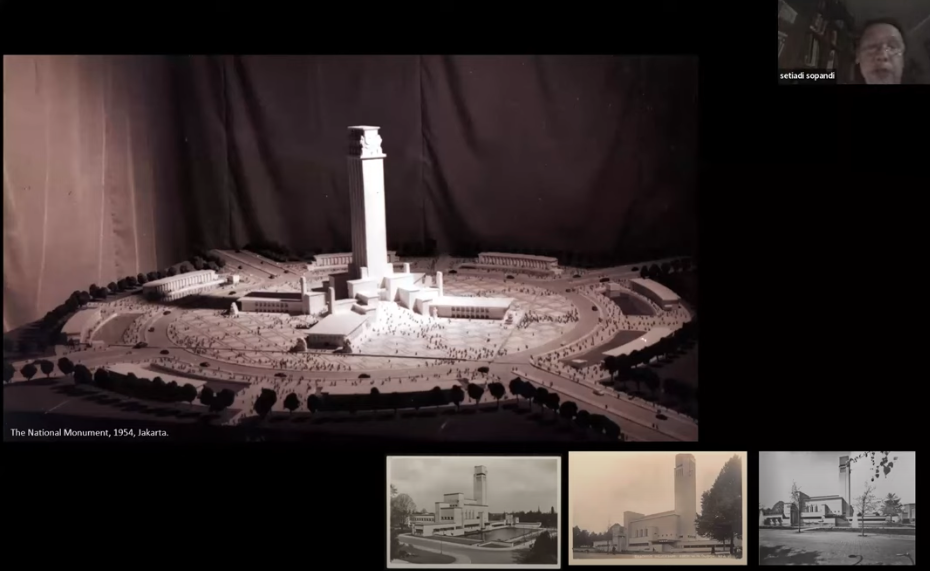In his lecture, Setiadi Sopandi provides a brief overview of the career of Friedrich Silaban, arguably the most prominent modern Indonesian architect, whose influence spanned from the late colonial period to the late 1970s, reaching its zenith during the early independence era. This Collegetour delves into Silaban’s notable works, including the Istiqlal Mosque, the unbuilt National Monument, and the Bank Indonesia building. Additionally, it explores Silaban’s pivotal role in numerous urban architectural developments in Jakarta, facilitated by his close association with Soekarno, Indonesia’s inaugural president. What challenges, difficulties and opportunities came Silaban's way during this period?
Setiadi Sopandi interprets the legacy of architects in Indonesia to recognize, understand, appreciate, remember and properly preserve the built heritage of Indonesia.
About the speaker
Setiadi Sopandi graduated from the Department of Architecture, Universitas Katolik Parahyangan in Bandung, gaining Bachelor of Architecture in 1998. In 2002 he got his M.A. in the Department of Architecture, School of Design & Environment, the National University of Singapore. He is a certified practicing architect, co-principal of a small practice, Indra Tata Adilaras, based in Bogor, Indonesia.
He has been actively involved in research, publishing, curating, and archiving since 2007 with special attention on modernism, modern architectural heritage, and contemporary art and architectural discourse in Indonesia and Southeast Asia – affiliated with modern Asian Architecture Network (mAAN), the mASEANa Project, and currently with Encounters with Southeast Asian Modernism. He is a co-founder, member of the board of curators, and currently the director of Museum Arsitektur Indonesia, the first and only repository dedicated for architecture archiving in Indonesia.

